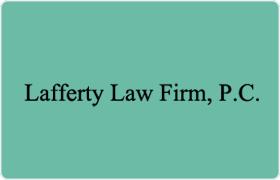Clarksville Bankruptcy & Debt Lawyer, Tennessee
Sponsored Law Firm
-
 x
x

Click For More Info:
-
Lafferty Law Firm, P.C.
1321 Murfreesboro Pike Suite 521 Nashville, TN 37217» view mapBankruptcy & Debt Over 30 Years Of Experience
Susan S. Lafferty is a CPA and Attorney who enjoys helping people with financial problems. She is located in Nashville, TN where she has lived for over 30 years.
800-936-9071
Gregory P. Patton
Class Action, Limited Liability Companies, Business Organization, Dissolution
Status: In Good Standing Licensed: 34 Years
Eric J. Yow
Pharmaceutical Product, Family Law, Collection, Products Liability
Status: In Good Standing Licensed: 18 Years
Brian Lee Hill
Divorce & Family Law, Criminal, Bankruptcy, Bankruptcy & Debt
Status: In Good Standing Licensed: 19 Years
Greg Patton
Class Action, Limited Liability Companies, Business Organization, Dissolution
Status: In Good Standing Licensed: 34 Years
Joel Wallace
Criminal, Federal Appellate Practice, Legislative Practice, Credit & Debt
Status: In Good Standing Licensed: 19 Years
Eric Matthew Bittner
Commercial Real Estate, Wills, Bankruptcy, Bankruptcy & Debt
Status: In Good Standing
Nicole Aquino Williamson
Trusts, Family Law, Corporate, Credit & Debt
Status: In Good Standing Licensed: 17 Years
Nicole Williamson
Trusts, Family Law, Corporate, Credit & Debt
Status: In Good Standing Licensed: 17 Years
 Susan Lafferty Nashville, TN
Susan Lafferty Nashville, TN Practice AreasExpertise
Practice AreasExpertise
